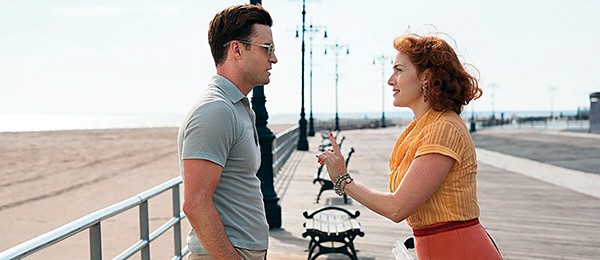I was a huge Woody Allen fan for years but haven’t watched his movies since Dylan Farrow published her letter detailing memories of abuse. Until I was assigned Wonder Wheel this week, I avoided his films. Having an object of intense identification (whom I aspired to imitate as a writer-filmmaker) suddenly designated for intense ostracism resulted in alienation: You just don’t think about who you formerly idolized. I loved him; now, I associate him with rape.
,p>His later, hackier works are often pale shadows of movies from the height of his talent. (Instead of watching them, I now periodically consume Farrow family testimony.) Any online discussion of new work instantly becomes a battleground over the specific history of his case. His movies lay the groundwork for many other romantic comedies and dramas, and their association with child rape is an incredibly uncomfortable piercing of the pop-culture bubble.
The bubble should pop. Nevertheless, the first two-thirds of Wonder Wheel has the attributes of a dramatic product that is consumable. We open on Mickey (Justin Timberlake) in a 1950s Coney Island lifeguard tower, addressing the audience. He is a playwright who wants to write a great melodrama in the style of Eugene O’Neill
The beach he surveys is fully realized: a million bright bathing suits in Edward Hopper light. We follow Carolina (Juno Temple) and Ginny (Kate Winslet) as they meet there. Ginny is an actress turned waitress, and Carolina is her stepdaughter, on the run from a Mafioso ex-husband, in search of her estranged father, Humpty (Jim Belushi). They go back to Ginny’s house, and it is a proper stagebound set with the eponymous Ferris wheel in the window, always flooded with artificial golden light. The trio emote in their cramped, fake quarters with screaming and monologues, but the framework saves it.
The O’Neill and Tennessee Williams pastiche forgives the tendency of Allen’s characters to state their thoughts and feelings too plainly. Temple and Winslet are pros; Belushi never quite leaves the quotation marks of his character, an abusive husband who wears a wife-beater. Timberlake pulls double duty as both self-proclaimed author of this world and Ginny’s secret lover. He gives one too many speeches commenting on the action, but there is a coldness to his eyes and a willingness to deceive in his delivery that make him interesting.

Justin Timberlake and Kate Winslet (right) star in Woody Allen’s new film Wonder Wheel.
Ginny and Mickey discuss fatal flaws in tragedy. Humpty threatens to hit Ginny. Winslet’s pyromaniac son (Jack Gore), the only openly comedic character, sets things on fire. Ginny dreams of starring in Mickey’s play and running away with him to Bora Bora. As she begins to obsess over him, Winslet does a great soliloquy swathed in unnatural red light. When things get more melodramatic, her scenes are soaked in neon blue, then harsh white.
Unfortunately, the artificiality that sold the beginning of the movie handicaps emotional connection at its end. Simple moments like a birthday party have no real life. The pauses between lines among minor characters there have the rhythm of an amateur stage production where the timing is flat. What made Allen’s delivery as an actor special was the sense he was both doing a comedian’s routine and reacting authentically to the world he had constructed around him. His anger and fear seemed real.
Without Allen, everyone is Margaret Dumont. The only characters that seem alive are the two female leads. Temple mainly fuels the plot, but Winslet has a great American accent that is best used in cutting anger and brutal sarcasm. The movie should have built toward that, turning her self-hatred outward toward those around her. Instead, at the finish line it fumbles a final monologue by heading toward an emotional state similar to Cate Blanchett’s in Blue Jasmine: denial.
As with everything, Allen’s biography leaks in. Ginny seems to be a stand-in for Mia Farrow, Timberlake for Allen. The movie is arguably a multimillion-dollar protestation of innocence. Last week, Dylan Farrow wrote a second letter, realleging the abuse and demanding Allen’s removal from the world of prestige filmmaking as the only punishment available (after previous contradictory legal episodes). Her question is not of separating the art from the artist, but of public safety. If Allen is a predator in a position of power, he is able to commit crime and avoid both justice and rehabilitation. Such questions make Allen’s art inconsequential to his nonfiction.